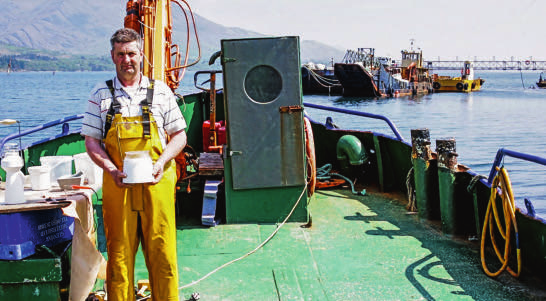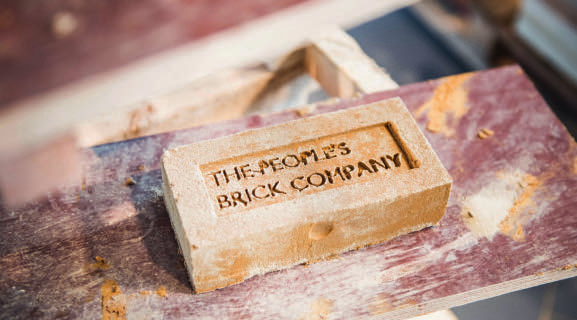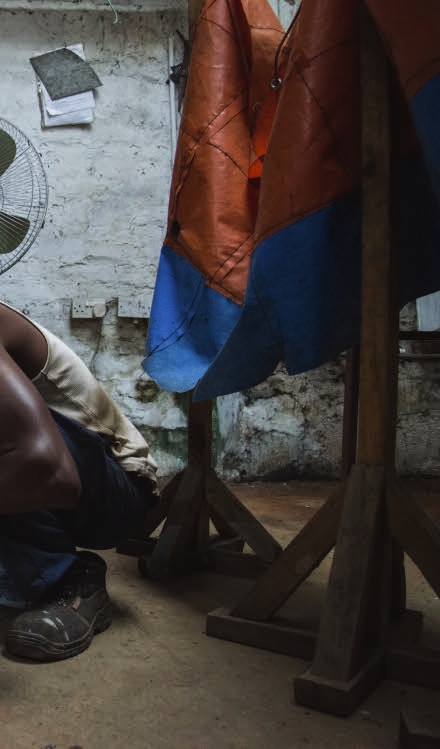Brands, retailers and advertisers need to recognise that there is a new conversation going on – and it is an open dialogue, not a closed monologue. Experience-hungry, knowledge hungry consumers are seeking learning and connection rather than sales talk, whether that selling involves products or principles.

-
IN SUMMARY
- Weary and wary of the political and corporate establishments, conscious consumers are seeking self-sufficiency and local solutions
- They are hungry for empowerment and knowledge rather than endless new product
- Brands thus need to start functioning as enablers, collaborating rather than dictating
- The rise of digital fabrication has enormous potential to revolutionise manufacture in terms of flexibility and decentralisation, paving the way for a more sustainable, less wasteful future
- Consumer demand for more say in what is produced and how it is made is growing apace
- Brands, retailers and advertisers need to recognise that there is a new conversation going on – an open dialogue, not a closed monologue

RE-ENVISAGING ECONOMIES OF SCALE
The same spirit of cooperation that informs cohousing projects can be applied elsewhere – and, indeed, needs to be applied elsewhere. There is no getting around the fact that big business, mass production and large-scale agriculture offer obvious advantages not only in terms of cost-effectiveness but also in terms of consistent supply. Fast Company neatly sets out the problem for food producers: ‘It’s easy enough to buy a handful of heirloom tomatoes at a local farmers’ market. But what if you need 400 – or even 4,000 – of them? What if you want to bring this kind of produce to large restaurants, grocery stores, or school and prison cafeterias?’

A new project in Portland, Oregon, is tackling this by setting up a food hub, the Redd on Salmon Street, which has signed up local producers to work together to supply clients. Fast Company reports around 350 such food hubs already in existence across the US. This kind of hub model can also be seen elsewhere. The Power to Change charitable trust in the UK, supported by £150m of lottery funding, offers financial support to businesses that are locally rooted, trading for the benefit of the local community, and accountable to the local community. All kinds of businesses, from farms to call centres, are eligible for funding, as long as they deliver positive local impact. The ‘devolution of power to local communities’ is the heart of the trust’s vision.
RELOCALISATION
This urge towards local support is widespread. In July 2016, Romania’s Business Review magazine website reported that the country’s president Klaus Iohannis had given final approval to a law compelling all supermarkets to source 51% of their food products from Romanian suppliers; a policy that could perhaps be described as relocalisation on a national scale. Other projects of all sizes that fight the local corner abound; Local Futures, originally based in Ladakh in the Himalayas, has been promoting localisation over globalisation for three decades and now works at international level. The Granby Four Streets project in Liverpool has regenerated a formerly derelict area of the city with refurbished housing, public space and work and enterprise opportunities. Designers are also exploring localisation, reinforcing people’s sense of place and belonging.

The People’s Brick Company, created by arts and architecture practice Something & Son, reveals the brickbuilding heritage of London’s Greenwich district, an industry that helped build the city. Beyond the Mainland by Central Saint Martins MA graduate Phoebe Quare, inspired by the 165-strong community of Bere Island off the southern coast of Ireland, asks whether a diminishing community can be regenerated through innovating lost heritage using locally sourced materials (see our Translation section for more details). And Muji, in collaboration with Atelier Bow-Wow architects, proposes the Tanada Terrace Office, envisaged for a rice-growing village called Kamanuma, and intended to support the traditional way of life there while enabling more modern working practices in the village.
THINKING BIG, ACTING SMALL
Brands, retailers and advertisers need to recognise that there is a new conversation going on – and it is an open dialogue, not a closed monologue. Experience-hungry, knowledge-hungry consumers are seeking learning and connection rather than sales talk, whether that selling involves products or principles. Brands who can help drive community engagement will make those connections; to achieve that, they need to relocalise their own identities and abandon the idea that one size fits all. This is all about bottom-up innovation and carefully managed sustainability agendas that can make real change – on a scale that is evident, visible and relevant to consumers.









